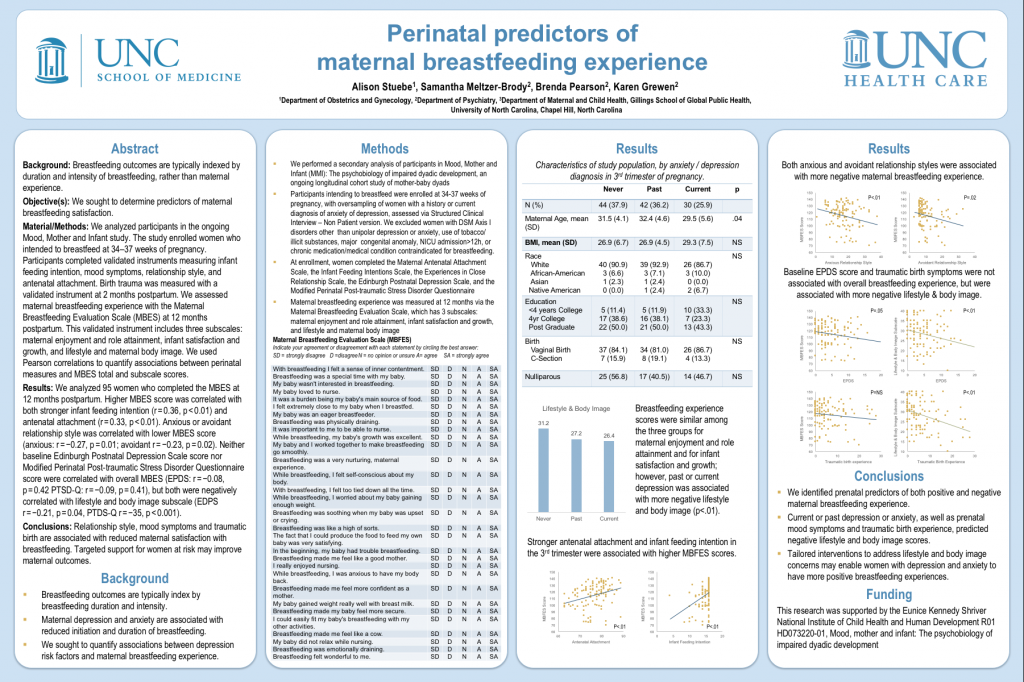Alison Stuebe presented on predictors of maternal experience of breastfeeding at the Academy of Breastfeeding Medicine conference in Washington, DC, October 14-16, 2016.
56. PERINATAL PREDICTORS OF MATERNAL BREASTFEEDING EXPERIENCE
Category: Research
Background: Breastfeeding outcomes are typically indexed by duration and intensity of breastfeeding, rather than maternal experience.
Objective(s): We sought to determine predictors of maternal breastfeeding satisfaction.
Material/Methods: We analyzed participants in the ongoing Mood, Mother and Infant study. The study enrolled women who intended to breastfeed at 34–37 weeks of pregnancy. Participants completed validated instruments measuring infant feeding intention, mood symptoms, relationship style, and antenatal attachment. Birth trauma was measured with a validated instrument at 2 months postpartum. We assessed maternal breastfeeding experience with the Maternal Breastfeeding Evaluation Scale (MBES) at 12 months postpartum. This validated instrument includes three subscales: maternal enjoyment and role attainment, infant satisfaction and growth, and lifestyle and maternal body image. We used Pearson correlations to quantify associations between perinatal measures and MBES total and subscale scores.
Results: We analyzed 95 women who completed the MBES at 12 months postpartum. Higher MBES score was correlated with both stronger infant feeding intention (r = 0.36, p < 0.01) and antenatal attachment (r = 0.33, p < 0.01). Anxious or avoidant relationship style was correlated with lower MBES score (anxious: r = −0.27, p = 0.01; avoidant r = −0.23, p = 0.02). Neither baseline Edinburgh Postnatal Depression Scale score nor Modified Perinatal Post‐traumatic Stress Disorder Questionnaire score were correlated with overall MBES (EPDS: r = −0.08, p = 0.42 PTSD‐Q: r = −0.09, p = 0.41), but both were negatively correlated with lifestyle and body image subscale (EDPS r = −0.21, p = 0.04, PTDS‐Q r = −35, p < 0.001).
Conclusions: Relationship style, mood symptoms and traumatic birth are associated with reduced maternal satisfaction with breastfeeding. Targeted support for women at risk may improve maternal outcomes.

